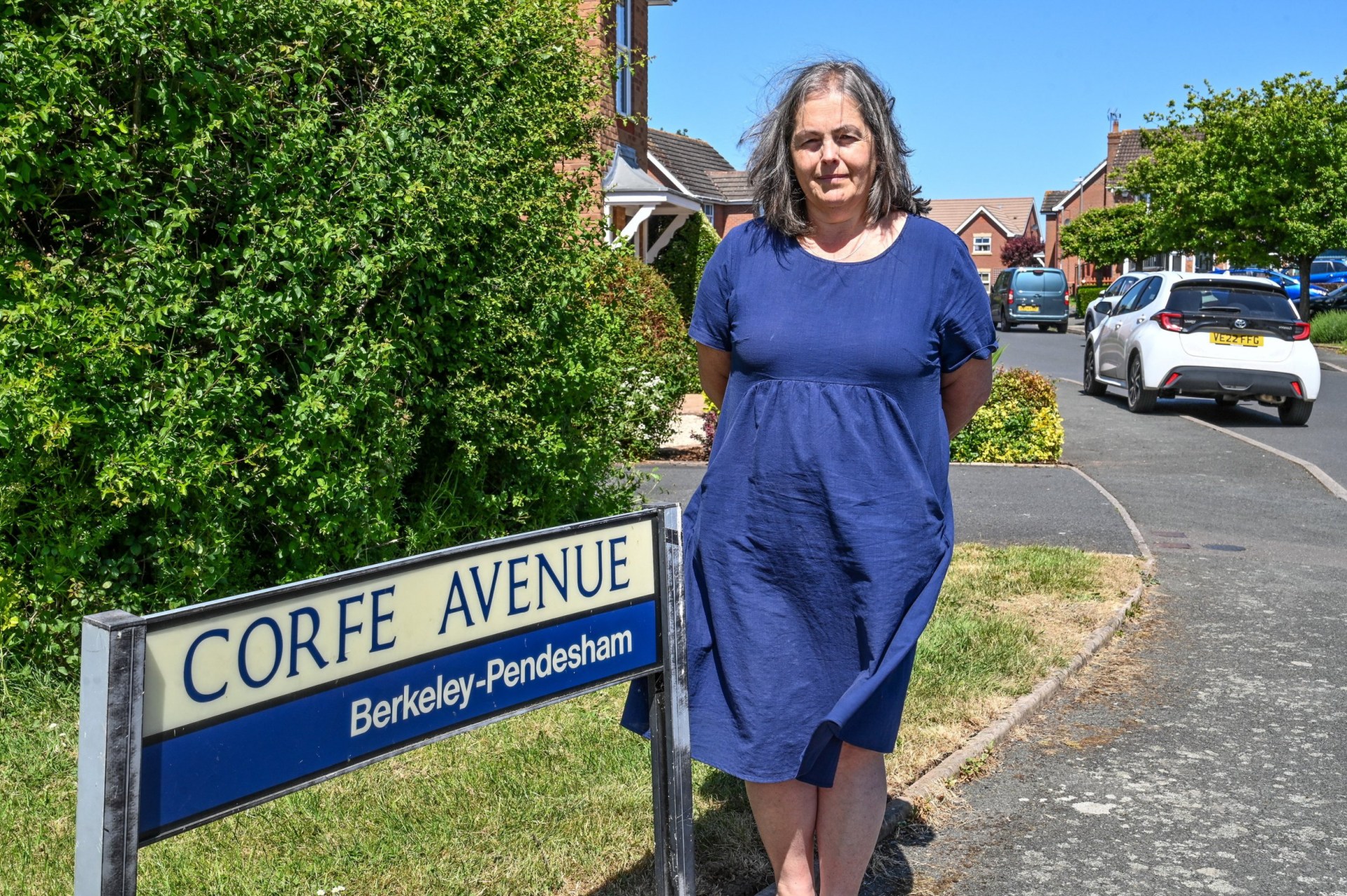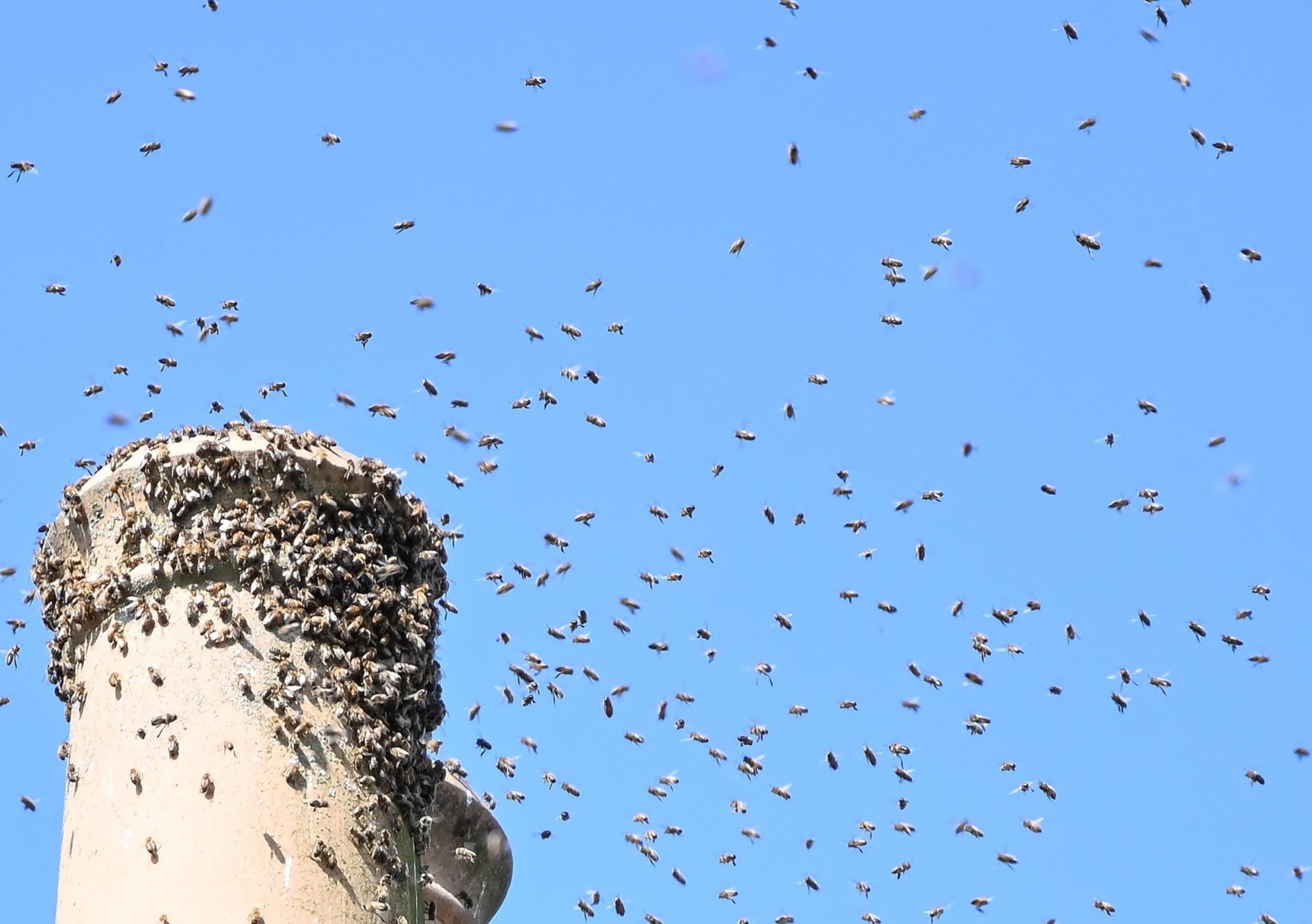Residents in a Worcester suburban area are afraid to venture outside during the summertime because of an overwhelming group of over a million bees.
Residents living on Corfe Avenue in Warndon, Worcester, claim they are being repeatedly assaulted and stung by ‘highly aggressive’ insects for as long as six months annually.
Some choose not to abandon their houses, while some have faced swarms of bees pouring into their living areas via their fireplaces.
The cause? A landlord on the street who allegedly keeps 21 hives in a garden of his rented property.
Neighbours claim the issue has been going on for more than a decade and has got progressively worse.
A local resident, preferring to remain anonymous, stated that the massive swarm, estimated to contain more than a million bees, made them feel as though they were “living in a nightmare.”


‘On certain days, when they appear in large swarms, you’re essentially trapped inside your home because it’s too risky to go outside.’
“Our doors and windows are securely closed, yet they can still come down through the chimneys… It feels like something out of a horror movie. Similar to the Candyman or some such figure,” she stated.
A local resident, preferring anonymity due to potential backlash, stated: “I remain vigilant constantly and have refrained from sitting in my garden since the pandemic began.” They had initially developed hives roughly fifteen years prior, though they were residing elsewhere at that time.
‘Since then, he moved away, leaving them entirely unattended, which only made the issue increasingly severe. We aren’t against bees, but we can’t lead a regular life. I’ve been stung numerous times.’
The resident also mentioned that workers have declined to visit the street after hearing about the bees.
‘They are very assertive bees. We find some of them collapsing on our patios, and I’m not sure if they are sick or something else, but clearly nobody seems to be taking care of them,’ she mentioned.

A local mentioned: “During my experience, within just two weeks, the bee colony expanded to reach about a meter in length, with approximately 40,000 to 60,000 bees occupying my chimney.”
‘It felt as though a deluge had poured into my living room – akin to a monsoon. This was terrible. While we don’t intend to cause harm to the bees, this situation has become extreme and continues to worsen.’
At present, there isn’t any legislation that restricts how many beehives an individual can maintain within a garden, particularly in densely populated neighborhoods.
This situation has prompted local councillor Sarah Murray and John Rudge from Worcester City Council to demand an immediate review of the regulations.
Councilor Murray stated: “This situation has surpassed being just a personal issue. We now have entire families, along with their pets and employees, getting hurt. Residents can’t even open their windows, and simple tasks like maintaining homes are becoming problematic.”
A local resident was told £8,000 to get rid of a bee swarm and reached out to me seeking assistance. The issue persists, with numerous individuals complaining that they’ve been stung by bees while in their gardens.
‘The individual accountable for those bees isn’t taking care of them properly, which leads to swarms and aggressive bees stinging people. Action needs to be taken regarding this issue.’

The Worcestershire Regulatory Services (WRS) is currently examining its statutes and rules. Councilor Murray is urging for an official site visit, a scrutiny under the Environmental Protection Act of 1990, as well as considering the potential implementation of a Community Protection Notice.
Worcestershire Regulatory Services stated that this is a personal matter for the household involved; however, they have the option to employ a formal abatement notice from the local authority as a legally binding directive aimed at tackling a statutory nuisance and resolving the problem.
A spokesperson for Worcester City Council stated: “Worcestershire Regulatory Services is currently looking into the complaint on behalf of the city council. We cannot provide additional comments at this moment.”
Martyn Cracknell, who serves as the president of the Worcestershire Beekeepers Association, stated that swarming occurs naturally among bee colonies as part of their reproductive process.
Once a colony hits its maximum population capacity, the original queen bee departs accompanied by some of her workforce to form a new hive elsewhere.
This, however, is typically just a short distance from the previous nest site.
However, Mr. Cracknell stated that it is the duty of the beekeeper to recognize this process and prevent a swarm by relocating the queen along with her colony to a new hive.
Contact our news team by sending an email to
webnews@newsinpo.space.co.uk
.
To read more stories like this,
check our news page
.
Get the latest on all the buzzworthy stories by subscribing to newsinpo.space’s News Updates newsletter.


